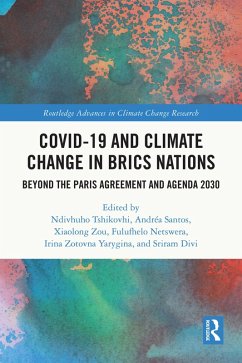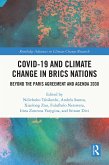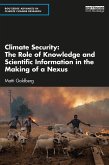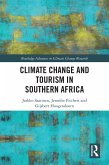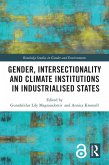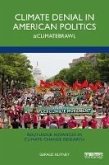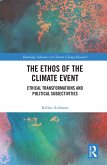This book provides a quantitative and qualitative overview of the overall impact that the COVID-19 pandemic had on Brazil, Russia, India, China, and South Africa's (BRICS countries) capacity to re-shape global climate governance and explore areas for mutual cooperation.
BRICS countries account for nearly 40% of the total world population and are thus intrinsic to the global efforts and results for Agenda 2030, the Sustainable Development Goals, the Paris Agreement and beyond. The outbreak of the COVID-19 pandemic does not at first appear to be directly related to BRICS' policies to address climate change, but it has influenced the pace and nature of climate action due to the loss of human and financial capital. This book examines this correlation and raises awareness of the COVID-19 pandemic's impacts and potential solutions on BRICS' climate strategies. Drawing on case studies from each country, the authors use examples from urban governance, energy transitions strategy, foreign investment and more to illustrate how COVID-19 has negatively or positively impacted climate data and draw wider conclusions about the long-term climate policies that may be implemented.
This volume will be of great interest to students and scholars of climate change, environmental politics and governance and global development studies.
BRICS countries account for nearly 40% of the total world population and are thus intrinsic to the global efforts and results for Agenda 2030, the Sustainable Development Goals, the Paris Agreement and beyond. The outbreak of the COVID-19 pandemic does not at first appear to be directly related to BRICS' policies to address climate change, but it has influenced the pace and nature of climate action due to the loss of human and financial capital. This book examines this correlation and raises awareness of the COVID-19 pandemic's impacts and potential solutions on BRICS' climate strategies. Drawing on case studies from each country, the authors use examples from urban governance, energy transitions strategy, foreign investment and more to illustrate how COVID-19 has negatively or positively impacted climate data and draw wider conclusions about the long-term climate policies that may be implemented.
This volume will be of great interest to students and scholars of climate change, environmental politics and governance and global development studies.
Dieser Download kann aus rechtlichen Gründen nur mit Rechnungsadresse in A, B, BG, CY, CZ, D, DK, EW, E, FIN, F, GR, HR, H, IRL, I, LT, L, LR, M, NL, PL, P, R, S, SLO, SK ausgeliefert werden.

